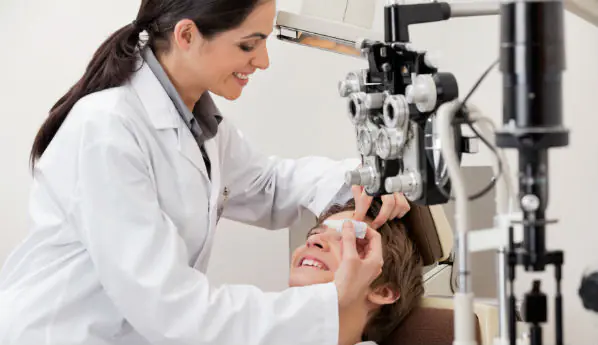Dry eye is a condition that is becoming increasingly common in the population. Patients complain of itching, burning and lacrimation. Many people note dryness, tension and discomfort, as if someone poured sand into their eyes. Ophthalmologists are sounding the alarm and warning that dry eye syndrome can lead to serious vision problems if left untreated.
Head of the Department of Corneal Pathology, Institute of Eye Diseases and Tissue Therapy named after. V. P. Filatova of the Academy of Medical Sciences of Ukraine Galina Ivanovna Drozhzhina cites disappointing statistics: “According to world indicators, the number of the population suffering from dry eye syndrome reaches 18%. This disease is most common among residents of developed countries. In Ukraine, the syndrome is diagnosed in 12% of ophthalmological patients under the age of 40 and over 67% of patients over 50 years old."
In this article we will look at some tips from ophthalmologists to help combat dry eyes.
-
Normalize your lifestyle
Dry eye syndrome is directly related to modern lifestyle, in which the eyes are subjected to significant stress. Lack of a sufficient number of blinks when reading, working with a computer monitor and various devices, driving a car, as well as being in rooms with uncomfortable humidity for the eyes can lead to dry eye syndrome. Therefore, you should first normalize your lifestyle to reduce eye strain. -
Drink enough fluids
Doctors recommend drinking at least 1.5 - 2 liters of water per day. This will help maintain moisture levels in the body and prevent dry eyes. -
Put less strain on your eyes
If your job involves reading, working on a computer, or other activities that require eye strain, then you need to take regular breaks. During such breaks, you can do eye exercises or simply close your eyes for a few minutes to relax. -
Take eye vitamins
Doctors recommend taking eye vitamins, such as Ocuvit Lutein Forte or Ocuvit Complete. These vitamins contain all the necessary microelements and substances that help strengthen vision. -
Use products to moisturize your eyes
There are many products available to moisturize the eyes, such as drops, gels and ointments. They can help relieve dry eye symptoms and moisturize the surface of the eye. However, before using such products, you should consult an ophthalmologist to choose the appropriate option. -
Maintain indoor humidity levels
Dry indoor air can contribute to dry eye syndrome. Therefore, it is important to maintain the humidity level in the room, especially in winter when the heating is on. To do this, you can use humidifiers or simply place containers of water in your rooms. -
Don't overuse contact lenses
If you use contact lenses, it is important to monitor their condition and care for them properly. It is not recommended to wear lenses longer than indicated in the instructions. You should also avoid sleeping with contact lenses.
Overall, dry eye syndrome is a common condition that can be prevented and treated. By following the above advice from ophthalmologists, you can reduce the risk of developing dry eye syndrome and improve your quality of life. However, if you experience dry eye symptoms, you should see an ophthalmologist for diagnosis and treatment.



